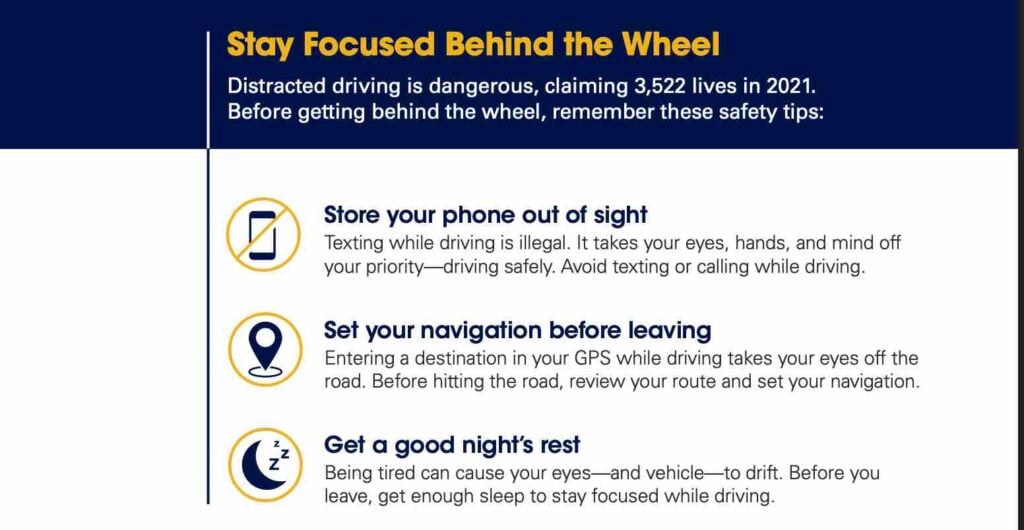
 Request FREE consultation - 1866-758-4529
Request FREE consultation - 1866-758-4529 
Every single year in Texas, thousands of people get injured – and many die too – in trucking accidents. Understanding the common causes of truck accidents is crucial. Taking the first step towards preventing these issues is to figure out what causes them in the first place & build up a solid case for when you get hurt.
According to the Federal Motor Carrier Safety Administration (FMCSA), close to 5,000 people lose their lives in trucking crashes across America. In Texas, with all those highways running through and major shipping routes like I-10, I-45, and I-35, large truck accidents are a rather regular occurrence.
If you’ve had the misfortune of getting hurt in an 18-wheeler accident, our Houston truck accident lawyers have already won millions for victims across the whole state of Texas – so why not call us at (281) 893-0760 right now, for your free case consultation?
The FMCSA conducted a Large Truck Crash Causation Study and identified several “critical events”—actions that made it impossible for a driver to avoid a crash. When you know what these things are, that’s half the battle when it comes to figuring out who’s at fault.
Sometimes, truck drivers just can’t keep a grip on their rig. This can be because of:
We see this happen all too often on Texas highways – especially when it’s raining or icy outside. The result can be a multi-vehicle pile-up with some severe injuries.
This might not sound so bad, but when a rig goes off the road, the result is almost always severe due to its massive size. Some common reasons for this include:
Most truck accidents actually involve impacts with another car, a motorcycle, or even another truck:
Texas law holds trucking companies liable when their drivers cause accidents through negligence or violations of federal safety regulations.
While the events we just talked about can tell you what happened, the critical reasons explain why. The FMCSA groups these reasons into three main areas:
Most trucking accidents are straight-up caused by driver error.
Fatigue & Hours of Service Violations: Federal regulations limit how long truckers can drive in any given stretch – but a lot of them still drive right past those limits to meet delivery deadlines. Drowsy driving is just as bad as being drunk.
Inadequate Training: Some trucking companies rush their new drivers through training so they can get out on the road quickly – but this can leave them unprepared to deal with the tough stuff like heavy traffic, bad weather, or steep mountain grades.
Aggressive Driving: Trucks are huge – and if you’re driving like a maniac, you’re going to end up in a world of hurt. This includes speeding, tailgating, and road rage incidents that end in a big truck smashing into a tiny passenger car.
Medical Conditions: If a truck driver has an undiagnosed or poorly managed condition like sleep apnea, diabetes, heart disease, or a seizure disorder, it can cause them to lose control of the truck for no good reason.
When trucks break down or aren’t maintained properly – that’s a recipe for disaster.
Brake System Failures: Air brake systems need regular checks & maintenance. The signs of a problem include worn brake pads, leaky air lines, or poorly adjusted brakes, all of which can render a truck’s stopping system useless.
Tire Defects: Tire blowouts often stem from worn treads, under-inflation, overloading, or manufacturing defects. Even though US federal regulations dictate a minimum tread depth, some companies just ignore those rules.
Lighting and Reflector Issues: Non-functioning lights, taillights, turn signals, or mirrors make big rigs invisible to other drivers – especially when they’re out on the roads at night.
Trailer Coupling Problems: Trailers that are not properly secured can come loose and detach from their cabs, creating a very real risk of accidents that can cause real harm to other road users.
Some of the external conditions that up the risk of an accident include:
The FMCSA has taken a close look at the most common factors that lead to large truck crashes in Texas and across the US, and these are what they found:
The pressure to get loads delivered on time can be intense, leading many drivers to stretch the truth or push the limits on how many hours they can drive without taking a break. Thankfully, our electronic logging devices (ELDs) have reduced but not eliminated this problem.
Eating, checking the GPS, checking texts, or checking the dispatch is a killer combination of distractions that can catch you out, even for a few seconds at highway speeds. Expressed another way, a three-second distraction is enough to let a truck traveling at 65mph cover a whole football field without your attention.
Going too fast makes it harder to stop in time and reduces the amount of time you have to react to something unexpected on the road. And for a fully loaded truck, well, it’s even worse. Stopping at 65mph takes over 525 feet—almost double what a car needs to stop.
Large trucks have some big blind spots on all four sides – and failing to check them properly before changing lanes is an accident waiting to happen.
Trucks need a lot more time to stop than cars, so when a truck driver follows too closely, it’s only a matter of time before they end up rear-ending someone if traffic slows down suddenly.
US federal regulations set out rules for weight limits & load distribution – and even though they’re not always followed, these rules are designed to keep everyone safe. Overloading or improperly securing cargo can cause a truck to tip over, its brakes to fail, or even to spill cargo onto the road.
The companies that run big rigs have a responsibility to keep them in good working order. Neglecting to do so or cutting corners on maintenance is just asking for trouble, and it often breaks a host of federal regulations as well.
Commercial drivers are supposed to be subject to regular drug testing – but despite that, some truckers still drive impaired by booze, drugs, or prescription meds.
Some of the worst crashes are caused by new drivers who haven’t received the proper training to handle many of the situations they encounter on the road.
It can be manufacturing defects—or maybe just poor maintenance—but when a truck’s steering system, brakes, tires, or electronic components fail suddenly, it can have disastrous consequences.
Over the past ten years or so, distracted driving has emerged as one of the leading causes of truck accidents in Texas and across the US. The rapid growth of smartphones & in-cab technology has made the roads a lot more hazardous than we’d like.

Commercial truck drivers are required to follow FMCSA rules that prohibit:
Even though these rules are meant to be clear, a lot of drivers still break them. And the things that seem to catch people out include:
The Devastating Consequences
When a driver takes their eyes off the road for just 5 seconds while traveling at highway speeds, they end up going approximately 440 feet—that’s the length of a football field—without even knowing it. During those 5 seconds, traffic patterns can change, cars can brake suddenly, or a pedestrian can step out onto the road.
The consequences of distracted truck driving are very real and include:
Black box data has been a game-changer in uncovering the real causes of truck accidents. Modern commercial trucks are fitted with Electronic Control Modules (ECMs), also known as “black boxes,” which have truly transformed the way truck accident investigations work.
ECMs continuously monitor everything, and record a ton of information in the seconds leading up to impact – like:
Black box data can provide a knockout piece of evidence that proves for a fact:
Trucking companies know that this data can prove their liability, which is why they often try to cover their tracks—literally—by hiding, or “accidentally” losing the black box evidence. That’s why it’s super important to contact an experienced truck accident lawyer to start early on the necessary investigation.

If you’ve had an accident with an 18-wheeler, follow these steps:

Under Texas law, you may be able to get compensation for:
Texas has a modified comparative negligence rule, which means you can still get money even if you were a little bit to blame – just not if you were more than 50% at fault
Well, according to some studies, driver error causes around 88% of all large truck crashes, but it’s worth noting that many factors can come into play, like car trouble or bad weather.
Truck drivers have to keep their electronic log records for at least six months.
To win a personal injury lawsuit against a truck driver in Texas, you must prove the trucker was negligent in causing the accident. While the trucker may have followed the safety rules, they may be held responsible for an accident like any other driver.
It’s a combination of the police report, what the witnesses say, the black box data, the truck’s maintenance records, the driver’s logbook, and sometimes even an accident reconstruction expert – and Texas law lets you still get money if you’re partly to blame – just not if you were more than 50% responsible.
Well, for one thing, they’re just so much bigger – commercial trucks can weigh as much as 20 times more than a car – so if you do get hit by one, the injuries can be a lot more serious.
You have two years to file a lawsuit in Texas – but the sooner you talk to a lawyer, the better – because evidence can disappear quickly.
If you’ve been hurt in a truck accident in Texas – with an 18-wheeler, a tractor-trailer, or a commercial truck – you need lawyers who know the ins and outs of the federal regulations and can take on the big trucking companies and their insurance – that’s what we do. Our Houston truck accident law firm has helped hundreds of truck accident victims across Texas collect millions in compensation for wrongful death and personal injury damages, including medical bills, lost work time, pain and suffering, and other out-of-pocket expenses.

Don’t let trucking companies and their insurance adjusters take advantage of you. Call 281-893-0760 now for a free, no-obligation case evaluation.
Related Resources